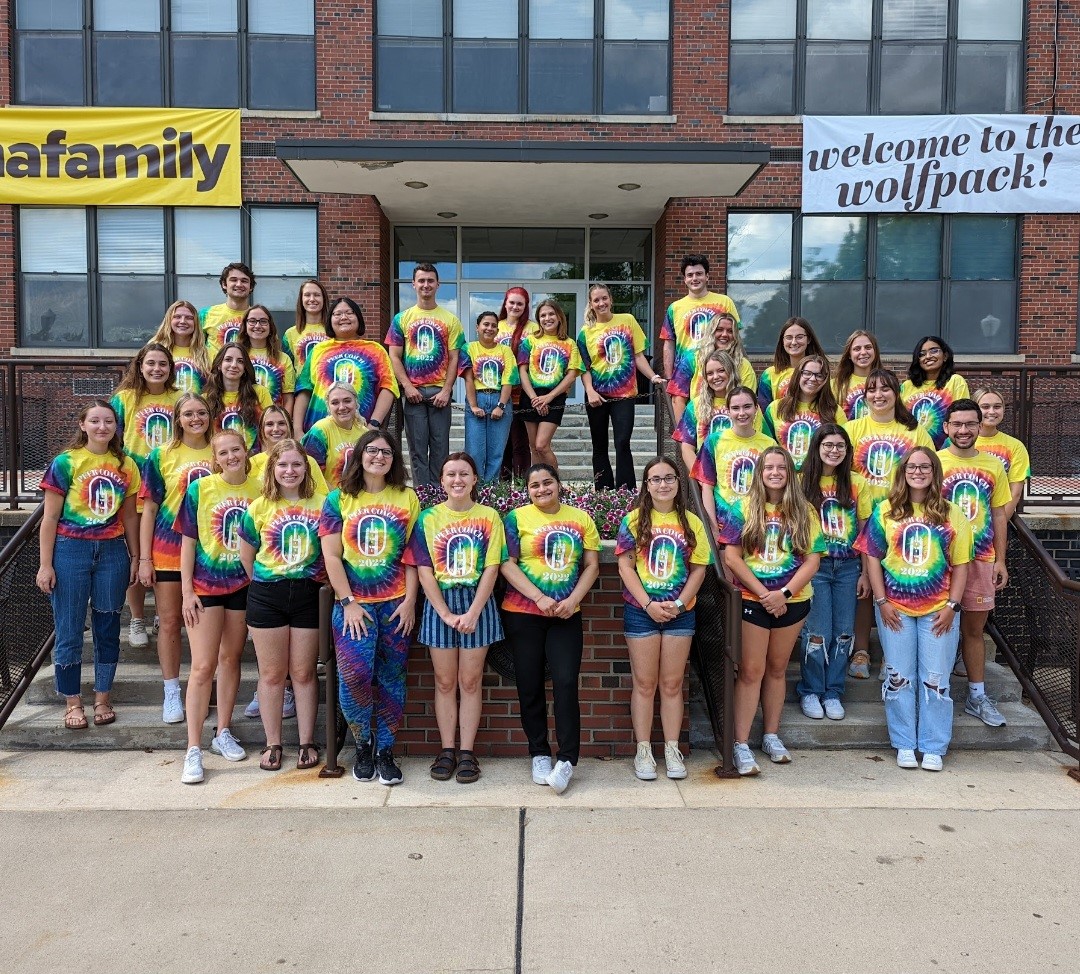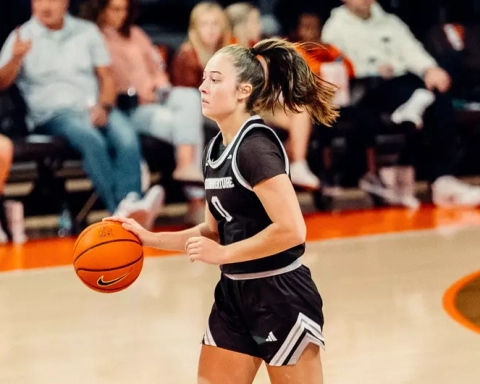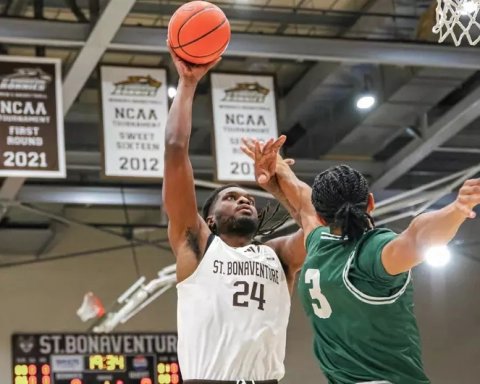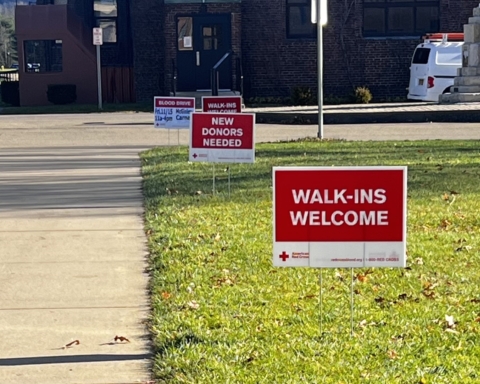Peer coaches for the 2022 fall semester
Photo courtesy of Stephanie Carpenter
BY: DAVID SCIBILIA, NEWS EDITOR
The class of 2026 is the last freshman class to experience SBU-101, SBU-102 and peer coaching as we know it. A new committee is meeting to revise the freshman experience to include a deeper emphasis on success with the ultimate goal of increased retention rates.
“The Student Success and Retention committee was put together as a response to a lot of the concerns we’re seeing with student retention,” David Hilmey, Dean of the School of Arts & Sciences as well as the co-chair of this committee said. “There’s a lot of reasons why students are successful, and there’s a lot of reasons why they struggle. We want to make sure they succeed.”
Focusing mostly on freshman year, this committee is discussing changes to the general education course, SBU-101 and SBU-102.
“We want students to enjoy but also learn from the course,” Hilmey said. “I don’t know if that was the case for all students. [This committee] is reworking [SBU 101 and 102] to try and find the right mix of content ranging from career development to showing students where certain offices are on campus.”
Freshman undeclared business major, David Hazall-Farrell, agrees with the direction this committee is taking the course.
“It’s a really good idea to take students around campus and show them the administration offices. I’m going into my second semester and I still don’t know where a lot of [offices] are,” Hazall-Farrell said.
Freshman accounting major, Jack Kennedy has a similar view to Hazall-Farrell.
“I’d like to know what the offices on campus do,” said Kennedy. “I didn’t know where payroll was or how to get an on-campus job; It would definitely help me if this was covered in SBU-101.”
In addition to this, peer coaching — the practice of an upperclassman student guiding freshmen through their first semester— is also being looked into for possible revisions.
“Peer mentorship has been proven to help with student success,” Hilmey said. “If it’s working well, let’s make sure that it’s working great. We are taking a really critical eye to it.”
As an incoming freshman student, Hazall-Farrell saw a lot of value in the peer coaching program, but pointed out areas he feels could be improved.
“I think the idea of peer coaching is good, but I’d like to have more in-person events,” Hazall-Farrell said. “Emails are nice, but they sometimes got lost in my inbox.”
Kennedy agrees with Hazall-Farrell.
“I didn’t benefit from my peer coaching experience,” said Kennedy. “I think if they increased the number of peer coaches so each one had fewer students, it would allow for a much more personalized experience.
Finalized changes for SBU-101 and SBU-102 will be put into practice during the fall semester of 2023. Although it is still being determined exactly what modifications will be made, dates have been set for the new curriculum to be put into place before the start of the 2023 fall semester.
“There is a whole series of recommendations that [the committee] are trying to finalize, and some of these, like SBU-101 are already in the process of moving forward,” said Hilmey.
Despite a large incoming freshman class, few things changed when it came to how this committee would be viewing the success of their modifications or implementing new revisions.
“I don’t know if it necessarily changed our approach, but it heightened our awareness,” Hilmey said. “[The University] may lose 10% of its student body in the first semester or a year. If it’s a larger class, that’s more students.”
Hilmey believes that the Bonaventure community will see greater success and deeper connections among students through the committee’s actions.
“Once we bring students here, we have an ethical and moral obligation to give those students everything we can to allow them to succeed,” Hilmey said. “This is something that the University is really committed to, from the Board of Trustees all the way down to our faculty.”
Scibild22@bonaventure.edu









